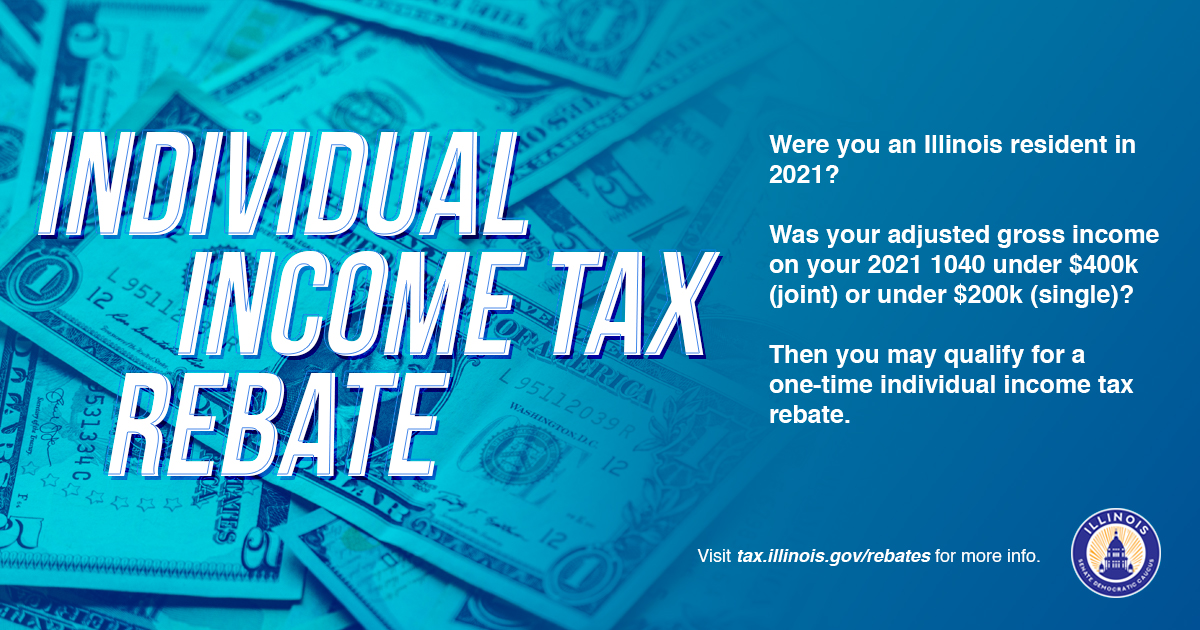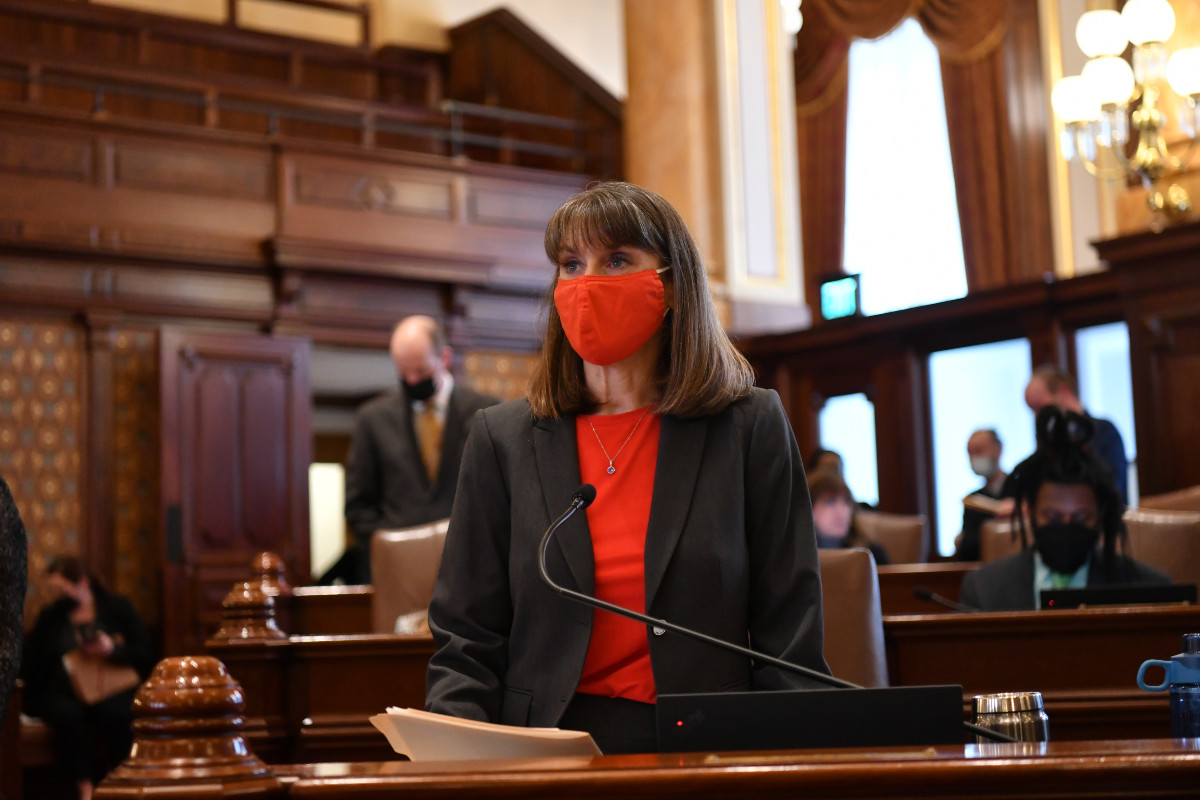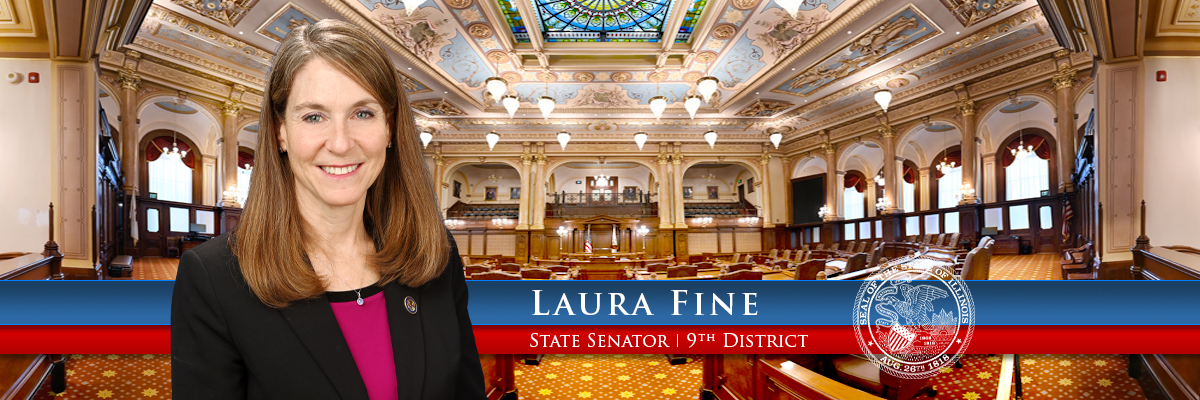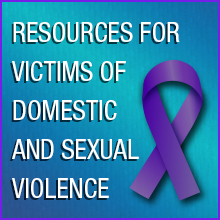- Details
- Category: Press Releases
 GLENVIEW – Residents will be able to learn more about the property tax appeal process and how to lower their property tax bill at an upcoming workshop co-hosted by State Senators Laura Fine and Julie Morrison.
GLENVIEW – Residents will be able to learn more about the property tax appeal process and how to lower their property tax bill at an upcoming workshop co-hosted by State Senators Laura Fine and Julie Morrison.
Cook County Board of Review Commissioner Michael Cabonargi will lead the workshop, which will take place at 6 p.m. on Wednesday, Nov. 16 at the Glenview Public Library, located at 1930 Glenview Rd. The workshop will take place in the Community Room East.
"As the property tax appeals process is complex, I appreciate Commissioner Cabonargi’s office for hosting this workshop," Fine said "I am hopeful this workshop will provide residents with useful insight to help them navigate the appeals process."
Residents are asked to bring their second installment property tax bill to the workshop, and to have their property index number on hand for reference.
“High property taxes are the number one issue I hear about from residents,” said Morrison (D-Lake Forest). “We’re working on long-term property tax reforms in Springfield, but to provide some relief in the meantime, residents should consider appealing their property tax assessment to potentially lessen their tax burden.”
For more information about filing an appeal, including online appeal options and filing deadlines, residents can visit CookCountyBoardOfReview.com/Cabonargi.
- Details
- Category: Press Releases

“Hard working people across the state are struggling to keep up with an increased cost of living,” said Senator Fine (D-Glenview). “The comprehensive plan we passed in the Senate will provide some relief to people across the state.”
Earlier this year, the Illinois Senate passed Senate Bill 157, which provides millions of Illinois taxpayers with financial relief – including direct tax rebates.
Under the law, people who filed 2021 Illinois taxes are eligible to receive an additional property tax and/or income tax rebate. Individual filers who make less than $200,000 will receive a $50 income tax rebate, and couples who make less than $400,000 will receive $100. Filers are also eligible for $100 per dependent, with a maximum of three.
Additionally, people who paid property taxes in 2021 on their primary residence in 2020 – and make less than $250,000 individually or $500,000 jointly– are eligible for up to $300. The rebate will be equal to the property tax a resident was qualified to claim on their 2021 taxes. People who have already filed taxes will automatically receive their rebate starting as early as this week.
“Illinois families should not have to face these economic difficulties alone,” Fine said. “I am committed to supporting our neighbors during this time. These rebates will help people with everyday expenses, like gas and groceries—which will provide assistance to those struggling with their finances right now.”
For more information on how the funds will be dispersed or to see qualification criteria, people can visit tax.illinois.gov/rebates.
- Details
- Category: Press Releases

“Transportation infrastructure is an essential part of daily living for drivers who are traveling for work, running errands, or visiting our area,” said Fine (D-Glenview). “Investing in infrastructure will ensure our roadways are up to the highest standard of quality and safety.”
As part of IDOT’s latest Multi-Year Plan under Rebuild Illinois, the 9th Senate District will benefit from $27.6 million in infrastructure investment, over the next six years, into 16 infrastructure projects.
A few of the projects that will receive funding in the next year include:
- Pavement preservation on IL 21, Milwaukee Avenue, and Willow Road
- Bridge reconstruction on Forest Way Drive and Willow Road
- Traffic signal modernization at Lake Avenue
These projects are part of IDOT’s multi-year plan, a $34.6 billion investment in construction projects for the next six fiscal years.
The $34.6 billion will go to highway reconstruction and preservation, bridge improvements, strategic expansion, system support such as engineering and land acquisition, and safety and system modernizations. Over six years, the funding will be dispersed to improve more than 2,500 miles of roads and nearly 10 million square feet of bridges.
“IDOT’s multi-year plan is essential for the safety of commuters and travelers all over our state,” Fine said. “I am eager to see the results of this investment in my home district and across Illinois.”
To find a full list of projects slated for the 9th Senate District, visit IDOT’s website.
- Details
- Category: Press Releases
 GLENVIEW – State Senator Laura Fine (D-Glenview) has been selected to join the new class of Milbank Fellows. The Milbank Fellows Program is a leadership program that focuses on public policy to improve health outcomes. This year’s class consists of 23 legislative and executive branch leaders from around the country whose work includes improving population health and health equity.
GLENVIEW – State Senator Laura Fine (D-Glenview) has been selected to join the new class of Milbank Fellows. The Milbank Fellows Program is a leadership program that focuses on public policy to improve health outcomes. This year’s class consists of 23 legislative and executive branch leaders from around the country whose work includes improving population health and health equity.
“I am honored to be selected to participate in this program, along with leaders from across the country who are also committed to improving health care in their communities,” Fine said. “During my time in the legislature, I have focused on a realm of healthcare issues, from access to affordability for both physical and mental health. I am excited to work with the program and learn new, evidence-based approaches to improve population health—allowing me to better serve my district and Illinois as a whole.”
The Milbank Fellowship program works to improve population health and health equity by collaborating with leaders and decision makers. Under the fellowship program, leaders will gain new knowledge about specific population health issues, interdisciplinary health and human services systems, and evidence-based approaches to improving population health. It also offers opportunities to expand their personal insight and leadership capacities in support of defining and advancing a population health vision and agenda, as well as to create meaningful connections with a network of colleagues.
“Each Fellow in our new cohort brings a remarkable wealth of health policy expertise as well as diversity of life experience,” said Milbank program officer Kate McEvoy, who oversees the state leadership programs. “We look forward to engaging with the Fellows and supporting them in continuous learning and the development of successful population health initiatives.”
Senator Fine will serve as a fellow in the 2022-2023 cohort.
More Articles …
Page 33 of 75







